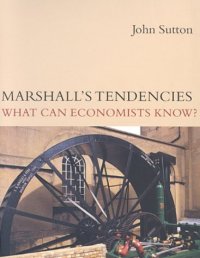
Ebook: Marshall’s Tendencies: What Can Economists Know?
Author: John Sutton
- Tags: Economics, Banks & Banking, Commerce, Commercial Policy, Comparative, Development & Growth, Digital Currencies, Econometrics, Economic Conditions, Economic History, Economic Policy & Development, Environmental Economics, Free Enterprise, Income Inequality, Inflation, Interest, Labor & Industrial Relations, Macroeconomics, Microeconomics, Money & Monetary Policy, Public Finance, Sustainable Development, Theory, Unemployment, Urban & Regional, Business & Money, Mathematics, Applied, Geometry & Topology, History, Infinity, Mathe
- Series: Gaston Eyskens Lectures
- Year: 2000
- Publisher: The MIT Press
- Edition: 1st
- Language: English
- pdf
The world of economics is a complicated and messy place. Yet modern economic analysis rests on an attempt to represent the world by means of simple mathematical models. To what extent is this possible? How can such a program cope with the fact that economic outcomes are often driven by factors that are notoriously difficult to quantify? Can such mathematical modeling lead us to theories that work? In these lectures, John Sutton explores what he calls the "standard paradigm" that lies at the heart of economic model building, whose roots go back a century to the work of Alfred Marshall. In probing the strengths and limitations of this paradigm, he looks at some of the remarkable successes, as well as deep disappointments, that have flowed from it.
For sales in Belgium, the Netherlands, and Luxembourg, contact Leuven University Press at fax (+32)16/32.53.52 or [email protected]
For sales in Belgium, the Netherlands, and Luxembourg, contact Leuven University Press at fax (+32)16/32.53.52 or [email protected]
Download the book Marshall’s Tendencies: What Can Economists Know? for free or read online
Continue reading on any device:

Last viewed books
Related books
{related-news}
Comments (0)